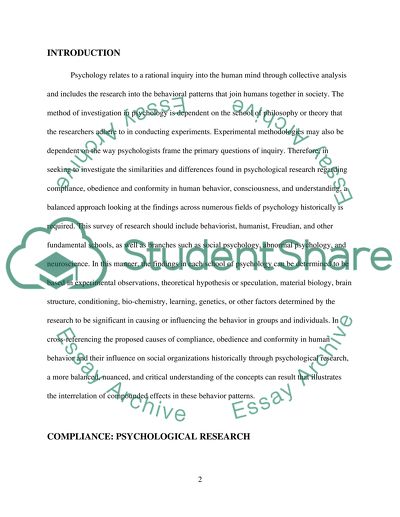Cite this document
(“Compliance, Obedience and Conformity: Perspectives from Psychology Essay”, n.d.)
Retrieved de https://studentshare.org/psychology/1431581-compare-and-contrast-the-concepts-of-compliance
Retrieved de https://studentshare.org/psychology/1431581-compare-and-contrast-the-concepts-of-compliance
(Compliance, Obedience and Conformity: Perspectives from Psychology Essay)
https://studentshare.org/psychology/1431581-compare-and-contrast-the-concepts-of-compliance.
https://studentshare.org/psychology/1431581-compare-and-contrast-the-concepts-of-compliance.
“Compliance, Obedience and Conformity: Perspectives from Psychology Essay”, n.d. https://studentshare.org/psychology/1431581-compare-and-contrast-the-concepts-of-compliance.


